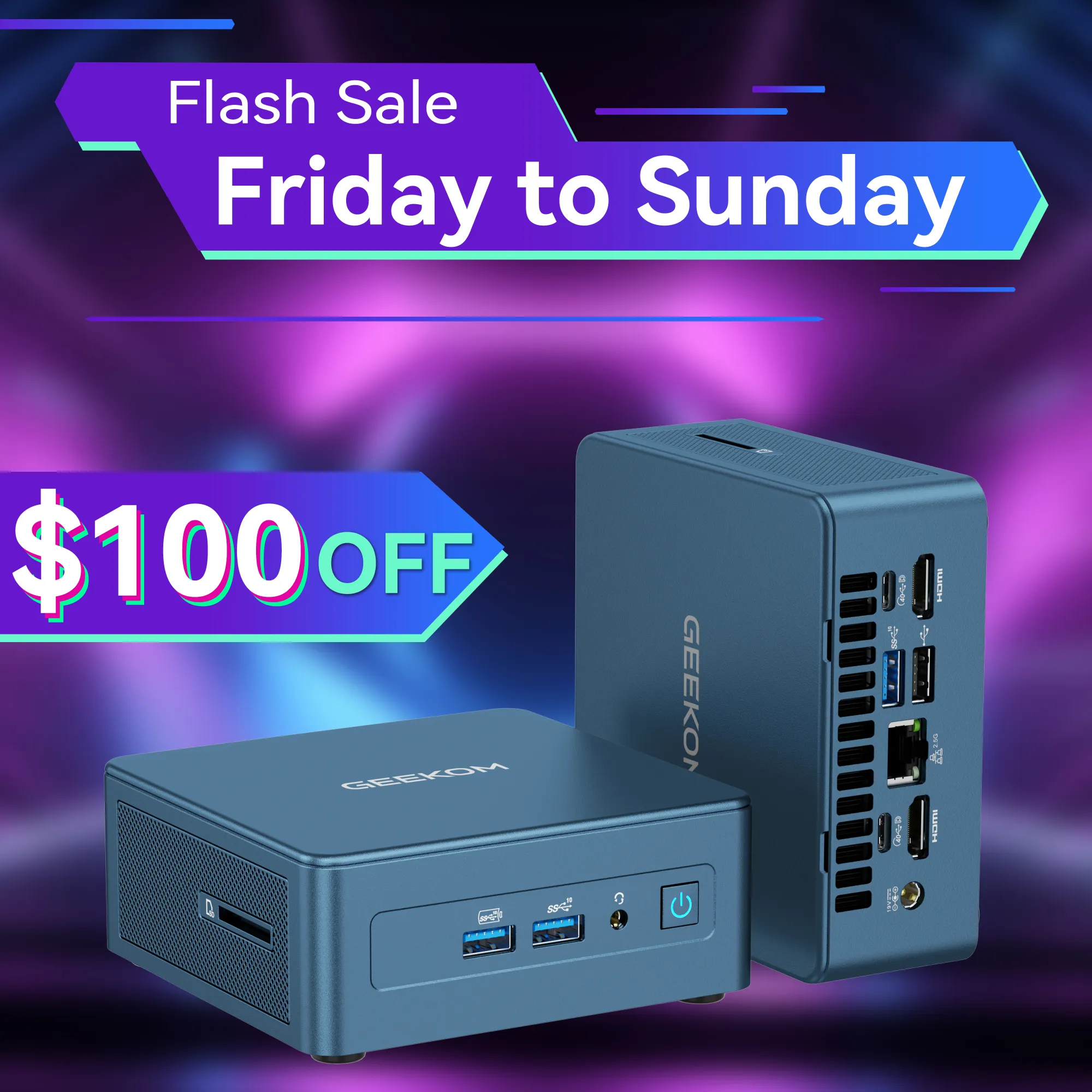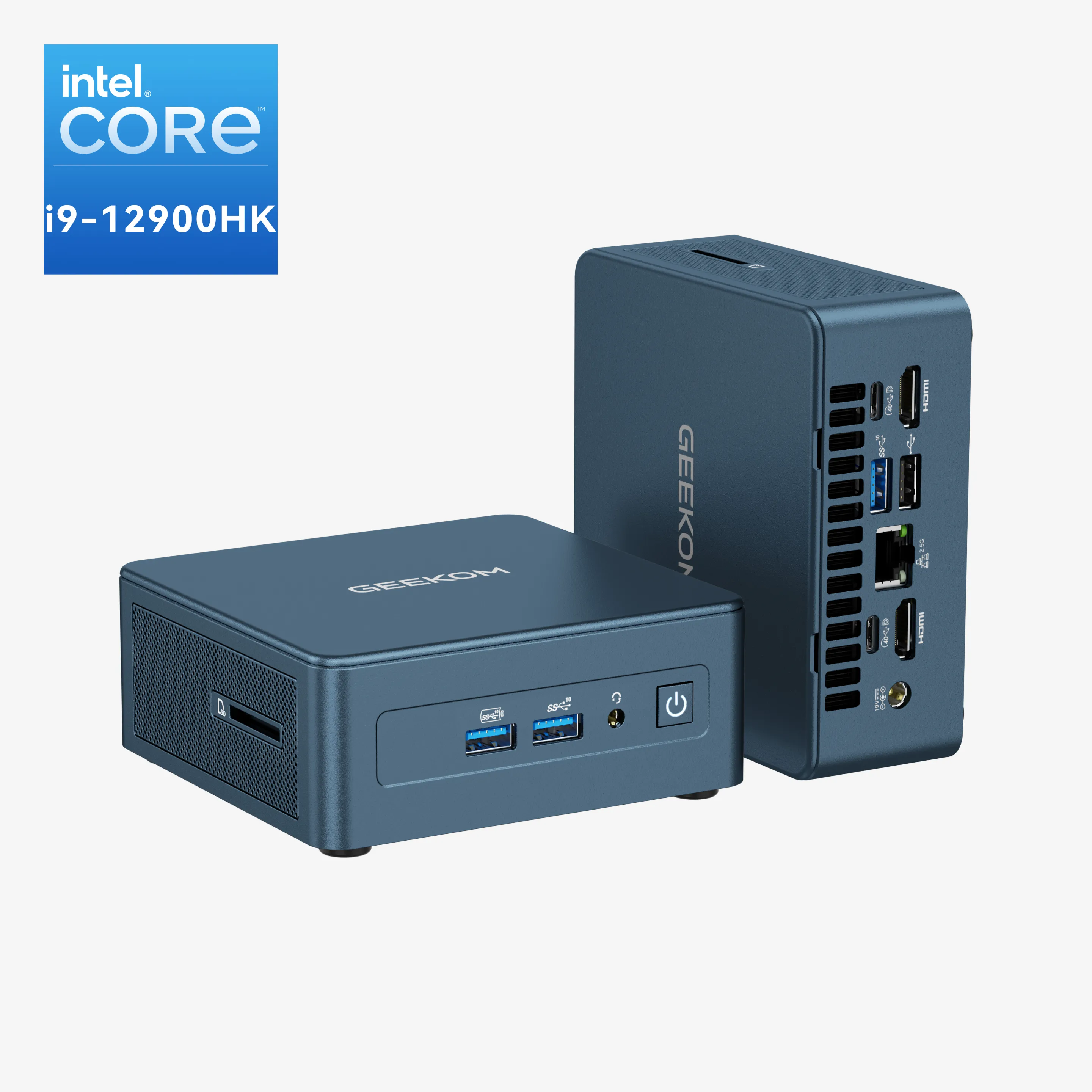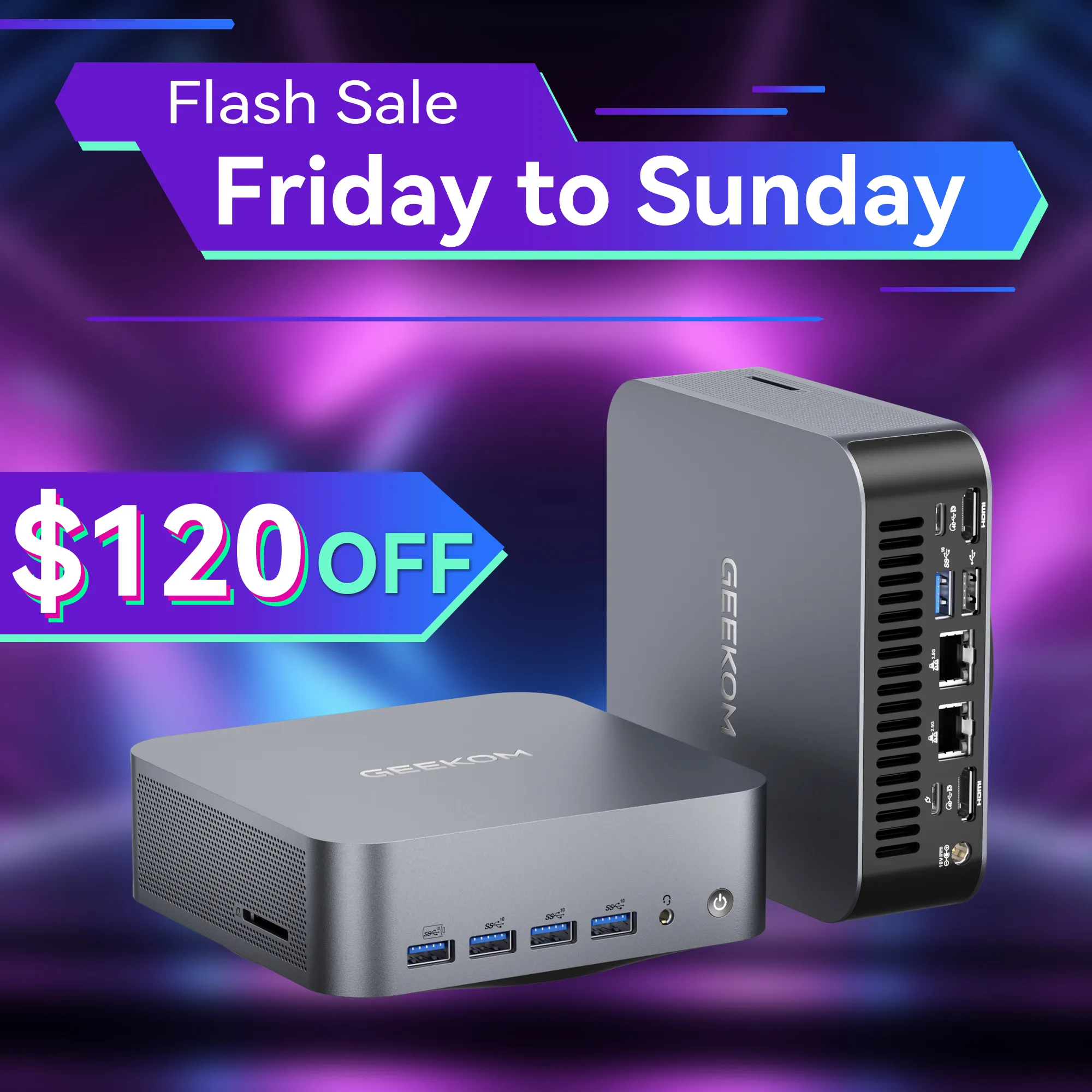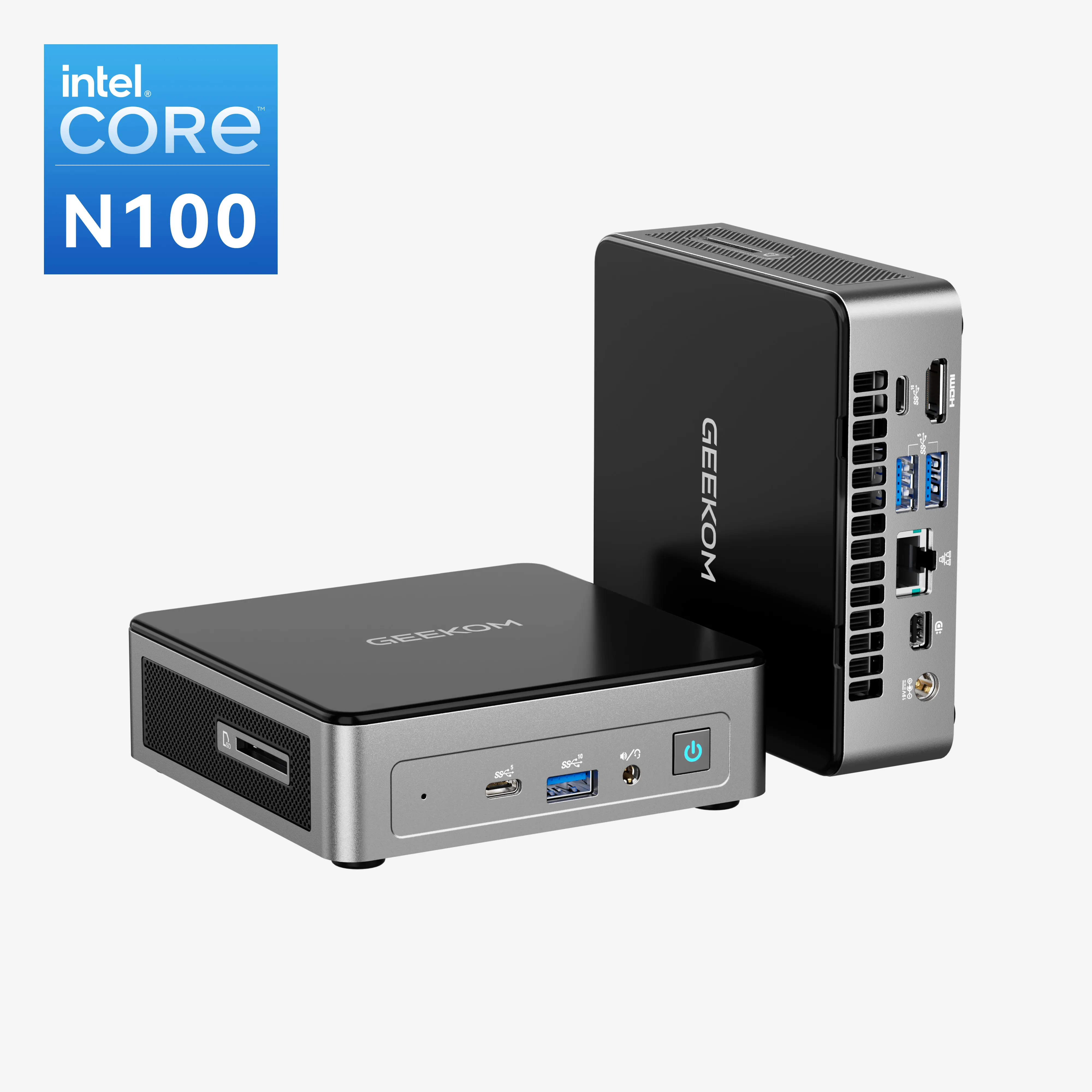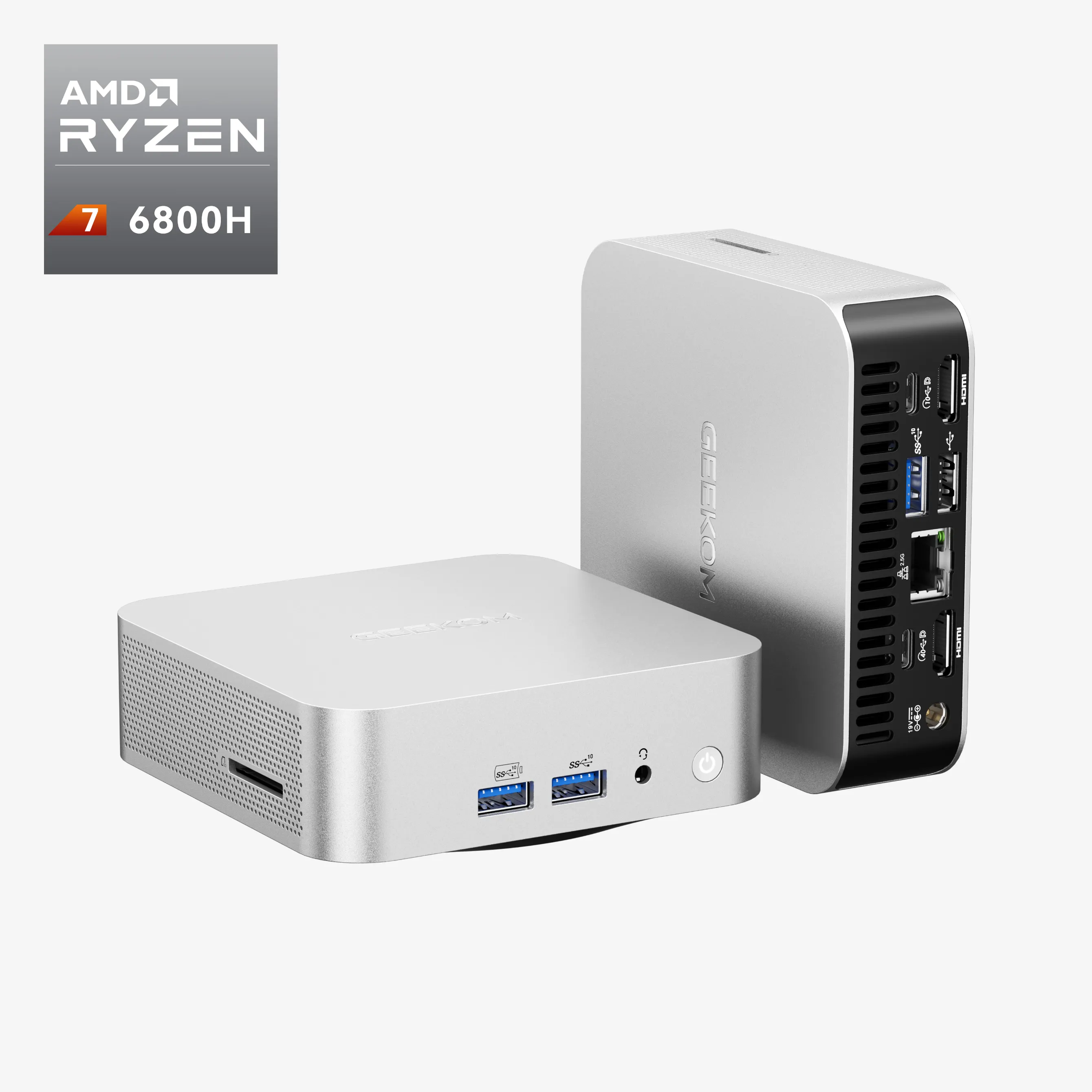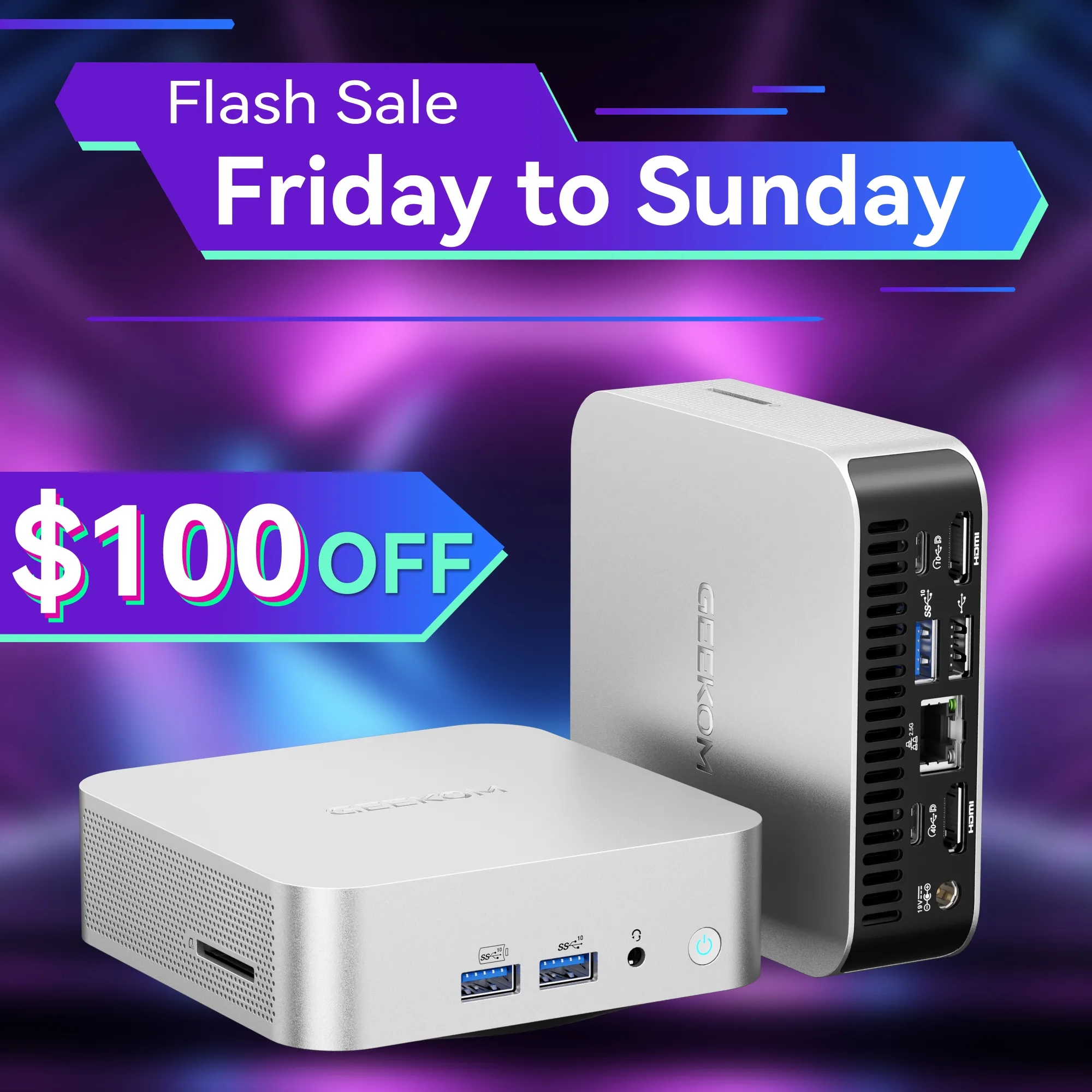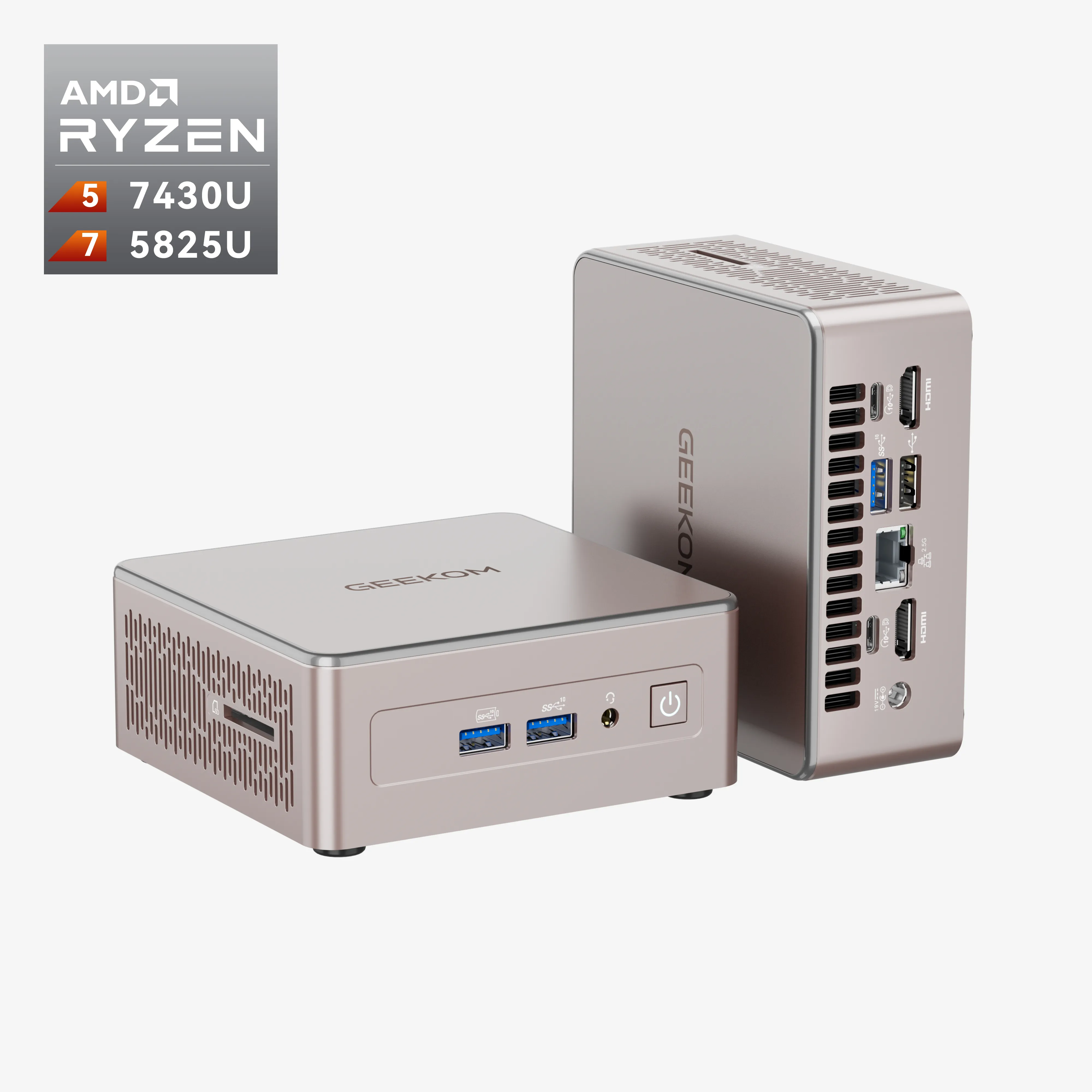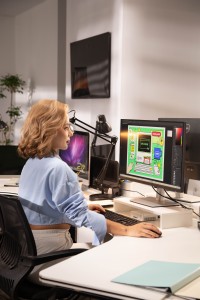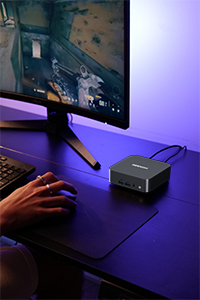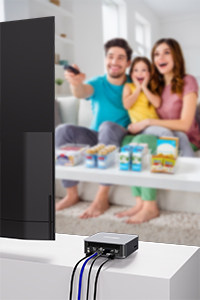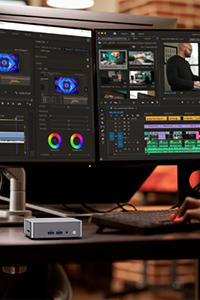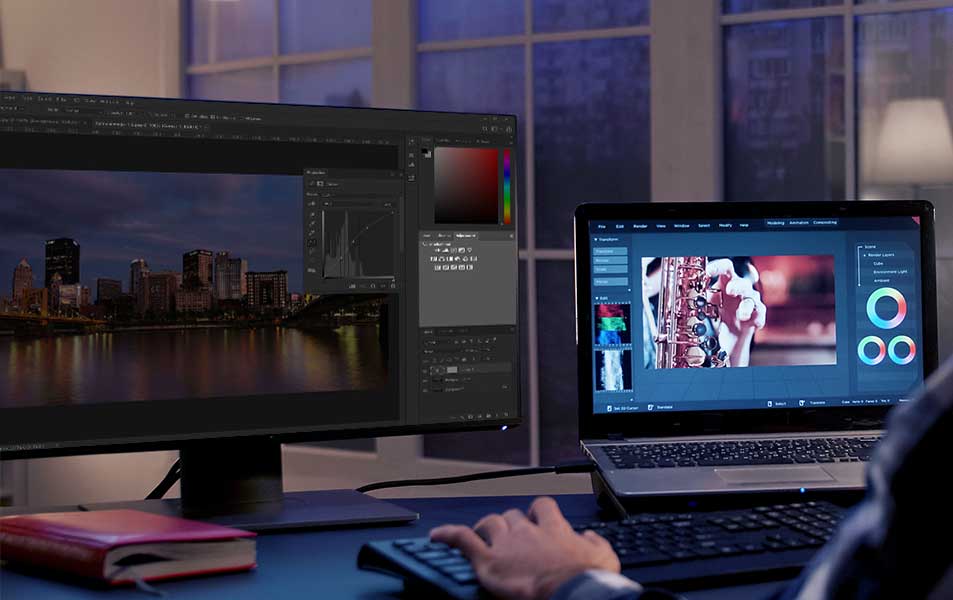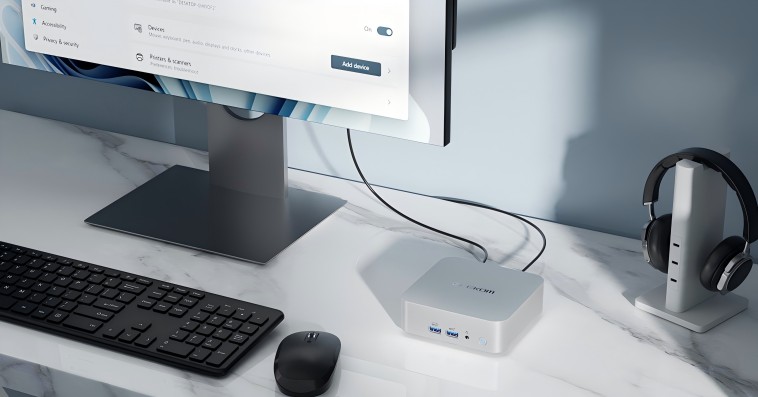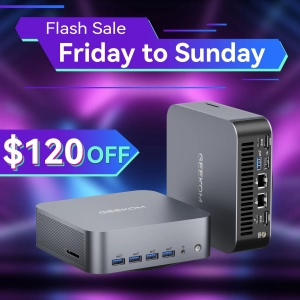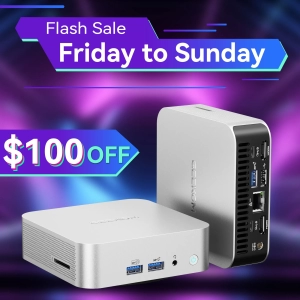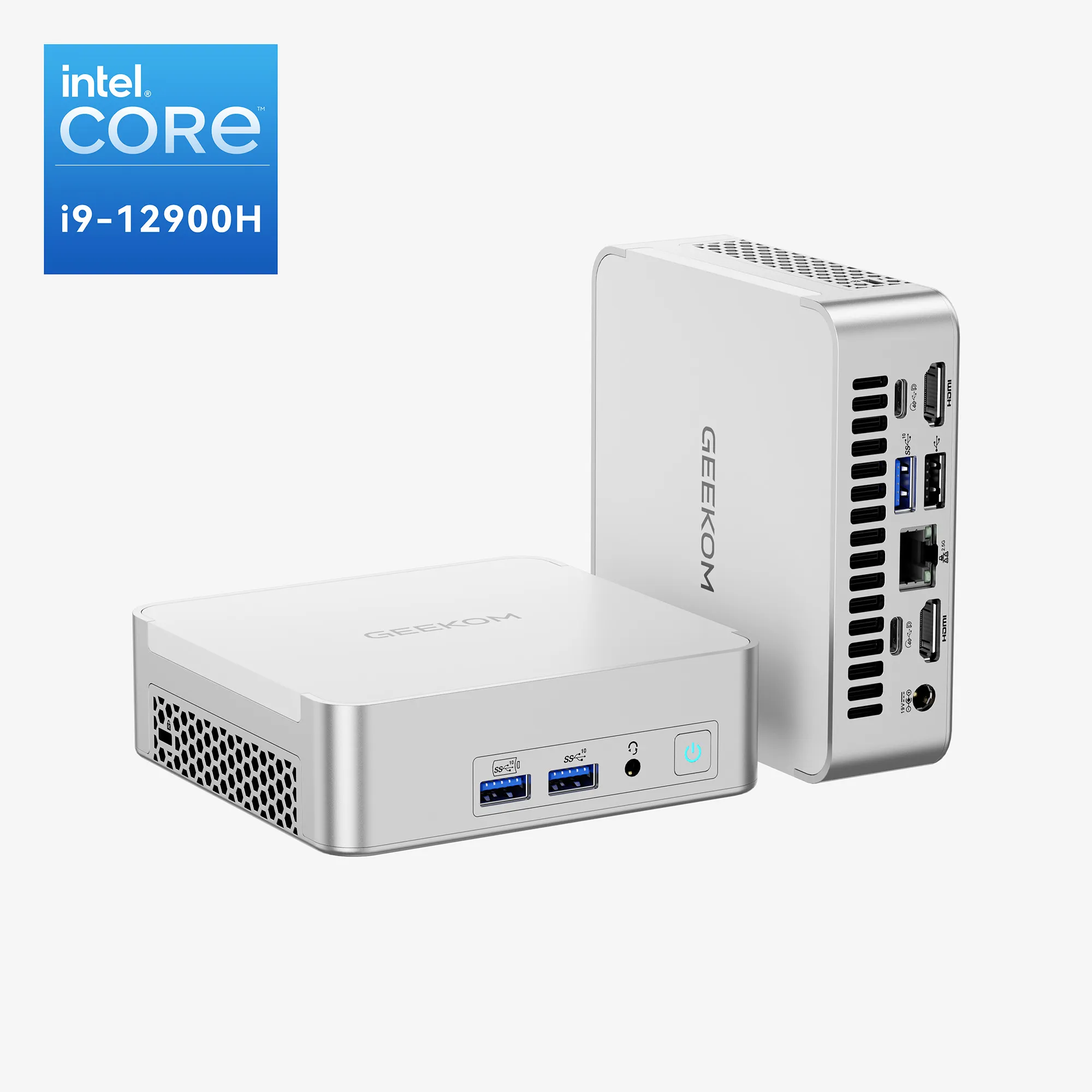Graphic design tasks demand considerable computing power to handle resource-intensive software applications like Adobe Creative Suite (Photoshop, Illustrator, InDesign), CorelDRAW, and others.
While desktop workstations and laptops have been the traditional choices for graphic designers, the rise of mini PCs has offered a new and compact solution for creative professionals.
Advantages of Using Mini PCs for Graphic Design
Mini PCs offer several advantages that make them appealing for graphic design work:
1. Compact and Space-Saving Design
These small desktop computers are significantly smaller than traditional desktop computers, allowing designers to save valuable desk space.
Their unobtrusive design also makes them a perfect fit for clutter-free workstations, making it easier to focus on creative endeavours.
2. Portability and Flexibility
The mini PC is exceptionally portable, making it ideal for graphic designers who are always on the move.
Whether working from home, at the office, or during travels, these lightweight devices can be easily carried from one location to another.
3. Energy Efficiency and Eco-Friendly
These mini PCs are designed to be energy-efficient, consuming less power compared to larger desktop computers.
By reducing energy consumption, graphic designers can contribute to a greener environment while also saving on electricity bills.
4. Quiet and Noiseless Operation
Unlike some conventional desktop computers, Mini PCs are engineered for quiet operation.
Their innovative cooling systems ensure that the devices run silently, promoting a peaceful and focused work environment.
5. Budget-Friendly Option
Mini PC offers a cost-effective solution for graphic designers who want powerful performance without breaking the bank.
Compared to high-end desktop workstations, Mini PCs provide an affordable alternative that still delivers exceptional performance for design-related tasks.
Learn more about the differences between mini PCs and desktops.
Considerations When Choosing a Mini PC
When selecting a mini PC for graphic design purposes, several crucial features should be considered.
1. Processor
When selecting a mini PC for graphic design, focus on processors known for their performance and efficiency. Popular choices include Intel Core i7, AMD Ryzen 7, and Apple M1 chips.
2. Graphical Prowess
Look for mini PCs equipped with powerful graphics cards such as Intel Iris Xe or AMD Radeon series for seamless rendering and design acceleration.
3. Memory
Adequate RAM is crucial for handling large design files and multitasking. Aim for a minimum of 16GB RAM, with the option to upgrade for future demands.
4. Storage Solutions
Solid State Drives (SSD) offer faster data access and boot times compared to Hard Disk Drives (HDD). Opt for SSD storage to expedite your design workflow.
5. Operating Systems
Choose an operating system that aligns with your preferred design software and workflow. Windows, macOS, and Linux are popular choices among graphic designers.
Have a soft spot for Linux? Check out Best Mini PCs Compatible with Linux.
6. Connectivity and Ports
Ensure your mini PC has ample USB, Thunderbolt, and HDMI ports for connecting peripherals, external displays, and accessories.
7. Display Resolutions
For precise design work, consider a mini PC that supports high-resolution displays, such as 4K or higher.
8. Cooling Solutions
Efficient cooling solutions, including fanless designs and advanced thermal management, ensure stable performance during prolonged design sessions.
9. Form Factor and Aesthetics
Most mini PCs come in various designs and colours, allowing you to choose one that complements your workspace and adds a touch of aesthetic appeal.
10. Noise Level
Look for mini PCs with low noise levels, especially if you prefer a quiet environment for focusing on your design projects.
Top 5 Mini PCs for Graphic Designers
To help you find the perfect mini PC for your graphic design needs, we’ve curated a list of the top 5 models renowned for their performance and reliability.
1. GEEKOM A7 Mini PC
The A7 is equipped with the latest AMD Ryzen 7 7840HS or Ryzen 7 7940HS processor, delivering exceptional performance for demanding tasks such as graphic design, video editing, and gaming. Paired with dual-channel DDR5 memory and a PCIe Gen4 SSD, the A7 handles even the most intensive workloads with ease.
The GEEKOM A7 Mini PC packs a powerful punch in a compact and stylish chassis. Measuring just 112.4 x 112.4 x 37 mm, it’s no larger than a book, making it ideal for space-constrained environments such as home offices, dorm rooms, or living room entertainment centres.
2. GEEKOM Mini IT12
For graphic design professionals seeking uncompromising performance, the Mini IT12 is an exceptional option. This mini PC can be configured with Intel Core or Xeon processors, offering up to eight cores for extreme multitasking capabilities.
The mini PC can be equipped with up to 64GB of RAM and multiple storage options, including NVMe SSDs and HDDs, allowing for efficient project management. The Mini IT12 is a true powerhouse for demanding design tasks.
3. Apple Mac Mini (M1)
The Apple Mac Mini, powered by the revolutionary M1 chip, takes graphic design to new heights. With an 8-core GPU and up to 16GB of unified memory, this mini PC delivers blazing-fast performance for design tasks.
The Mac Mini’s macOS ecosystem provides a seamless experience, and the Thunderbolt 3 ports allow for high-speed data transfer and connectivity. If you are deeply invested in the Apple ecosystem, the Mac Mini with M1 is a top-tier choice.
Conclusion
In conclusion, whether you prioritize performance, elegant design, or budget-friendly options, there’s a mini PC that suits your needs.
Ready to supercharge your graphic design projects? Check out GEEKOM mini PCs and find the perfect companion to boost your creativity!



